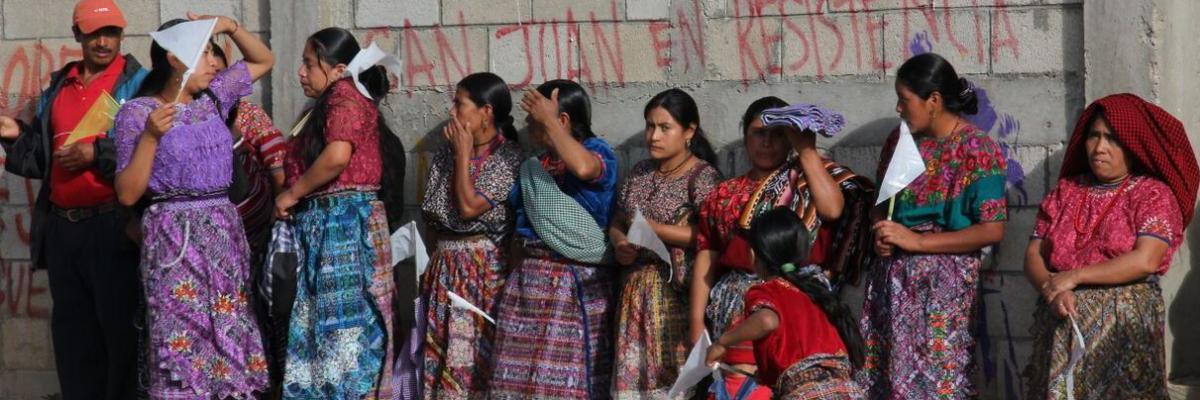"Everyone has the right, individually and in association with others, to promote and to strive for the protection and realisation of human rights and fundamental freedoms at the national and international levels." - UN Declaration on human rights defenders
In 1998 the United Nations recognised the importance of the work of human rights defenders and their need for protection by adopting the “Declaration on the right and responsibility of individuals, groups and organs of society to promote and protect universally recognised human rights and fundamental freedoms". In November 2009 the UN General Assembly passed a resolution reaffirming its commitment to protecting and supporting HRDs in their work.
In 2004, after initial drafting by an advisory council that included PBI, the European Union produced the first Guidelines on Human Rights Defenders. These Guidelines instructed EU diplomatic missions in their dealings with human rights defenders and governments around the world.
Four years later a second, updated set of EU Guidelines were produced in order to improve effectiveness in protecting HRDs on the ground.
EU Guidelines on Human Rights Defenders explained
The European Union Guidelines on human rights defenders were created to help staff in the embassies of EU member states to protect threatened human rights defenders (HRDs)
They advise EU diplomatic missions to:
- Produce periodic reports outlining the broad human rights situation, noting specific cases of concern.
- Take urgent local action when needed and make recommendations for further EU involvement.
- Prepare local strategies in co-ordination with HRDs, with special attention given to the protection of women defenders.
- Organise regular meetings between HRDs and missions diplomats
- Maintain contact with HRDs through receiving them in the missions and visiting their areas of work.
- Publicly recognise HRDs and their work through use of traditional and new-media methods of communication.
- Visit, where appropriate, HRDs in custody or under house arrest and attend trials as observers.
- Raise specific cases with third country governments.
- Involve HRDs in the preparation, follow-up and assessment of human rights discussions with third country governments.
- Provide measures for swift assistance of HRDs in danger, including the issuing of emergency visas and the offer of temporary shelter in EU member states.
- Provide access to financial support where necessary.
Urgent local action can be organised through “local working groups”, of which HRDs should be members. Actions can involve a combination of the options described above, as well as the diplomatic use of condemnations, démarches and public statements.
Equally integral to the Guidelines is a duty to “proactively” support human rights defenders on the world stage through political dialogue and promotion of the UN Human Rights Council and its Special Rapporteurs.
When, for example, the EU President, High Representative for Foreign Affairs or other relevant official visits a country with human rights issues they should seek to meet with HRDs wherever possible and reflect any concerns in their discussions with third country governments.


